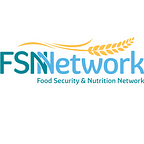#BreakTheBias for a More Food Secure World
By Alicia Fairfield, Mercy Corps
There are 811 million people facing food insecurity in the world, of which nearly 60% are women and girls. In addition to being disproportionately affected by food insecurity, women are an essential, yet often invisible part of the solution. Women account for an estimated 40% of the agricultural labor force across the Global South. However, patriarchal gender norms often limit women’s access to productive resources and opportunities. As we celebrated International Women’s Day this week under the theme #BreakTheBias, we reflect on how challenging gender-based biases can increase food security.
At the family level, men are typically designated as heads of household, limiting women’s decision-making authority. This includes decisions regarding food purchasing, income allocation, and agricultural production. However, the UN reports that women invest 90% of their earnings back into their families, compared to only 35% for men. At a systemic level, gender biases are ingrained in economic systems. According to the Food and Agriculture Organization (FAO), women smallholder farmers face particular difficulty in accessing loans due to social norms and a lack of collateral. However, the FAO estimates that if women had equal access to resources as men, they could increase their farm yields by 20–30%. When we #BreakTheBias to invest in women, we invest in a more food secure world.
USAID’s Bureau for Humanitarian Assistance (BHA) is dedicated to funding activities that help #BreakTheBias. For example, ‘Nobo Jatra- New Beginning’ is a USAID/BHA-funded Resilience Food Security Activity (RFSA), implemented by World Vision in Bangladesh, that seeks to improve gender equitable food security, nutrition, and resilience. Nobo Jatra provides financial access and business skills training for women in an effort to change the economic realities of the ultra-poor in Bangladesh. Additionally, through Nobo Jatra, nearly 60,000 women farmers have increased access to productive economic resources.
In addition to investing in women, Nobo Jatra engages men to #BreakTheBias at the household level. After engaging in these activities, 80% of men reported that women should be consulted on household budgeting and purchases — up from a baseline value of 43%. Additionally, 53.5% of participants think that men and women should share household tasks such as cleaning, cooking, and taking care of children — up from a baseline value of 8.3%. Nobo Jatra demonstrates how gender biases must be confronted at a variety of levels to improve gender equitable food security.
To further support gender-transformative activities through RFSAs, USAID/BHA is funding the Gender and Youth Activity (GAYA), which seeks to strengthen RFSAs’ capacities around gender and youth integration in food and nutrition security programs.
As a five-year associate award under the IDEAL activity, GAYA will facilitate peer-to-peer learning and capacity strengthening opportunities, including targeted capacity strengthening around gender and youth assessments, implementation, and integration. GAYA will also roll out a Small Grants request for applications in fall 2022. With women and marginalized populations at the forefront, GAYA seeks to #BreakTheBias and promote gender equity to reduce food and nutrition insecurity.
